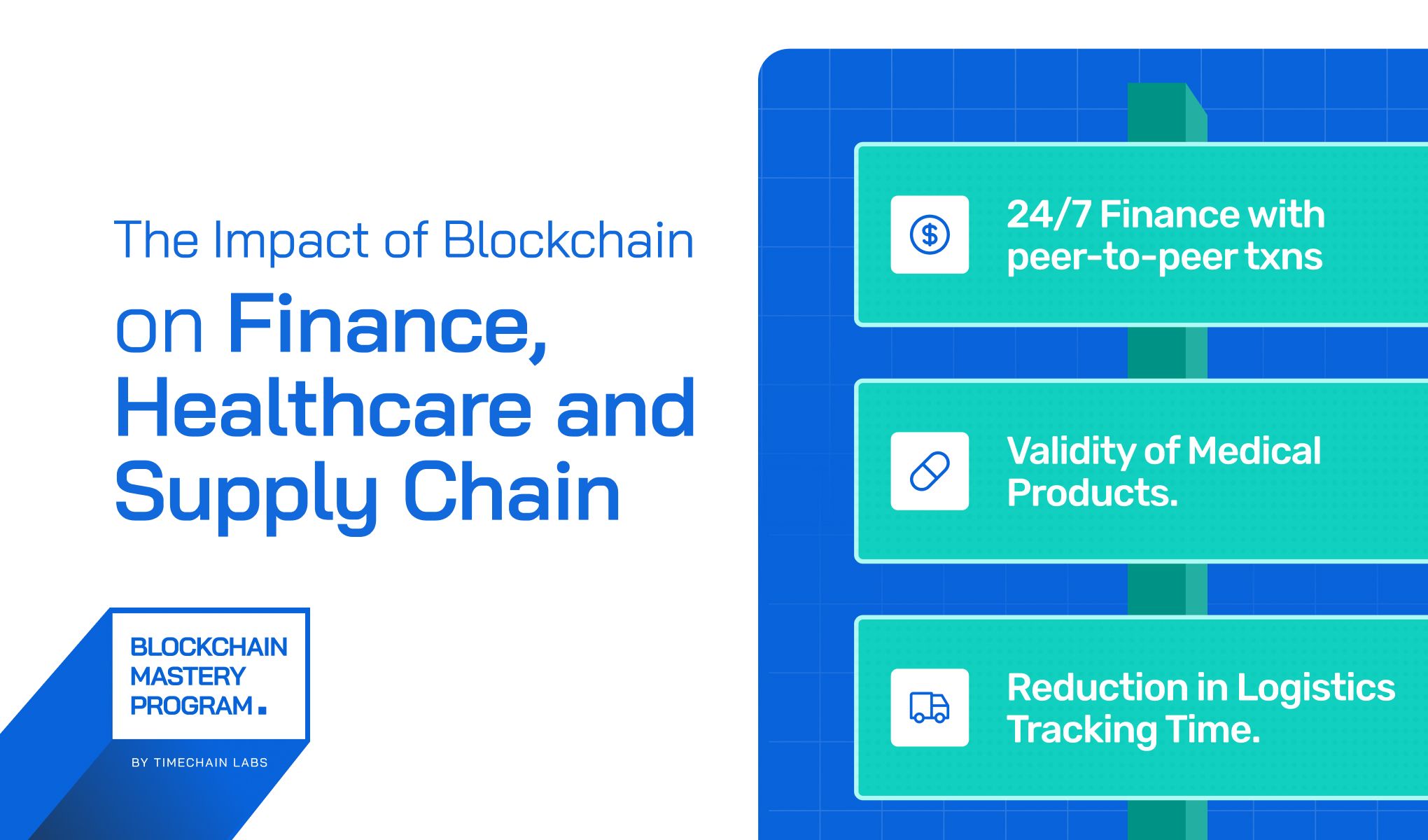Imagine a world where sending money takes seconds instead of days, your medical records are always accurate and secure, and you know exactly where your avocado traveled from farm to store. This isn’t some futuristic sci-fi plot—it’s the magic of blockchain happening today. Whether you’ve heard it called the backbone of Bitcoin or the “internet of value,” blockchain is reshaping how industries work in ways that are surprisingly relatable and practical. Let’s dive into how this tech is revolutionizing finance, healthcare, and supply chains—and why it’s way cooler than you might think.
1. From Bank Lines to Borderless Transactions
If you’ve ever sent money overseas, you’ve felt the pain: delays, high fees, and the constant dread of “What if it gets lost?” Blockchain fixes all that by enabling instant, secure, and low-cost transactions.
How Blockchain Works in Finance
At its core, blockchain eliminates the middleman. Instead of waiting for banks to process payments, blockchain allows peer-to-peer transactions. Platforms like Bitcoin and Ethereum make sending money as simple as clicking a button—and it works 24/7.
Examples:
- Remittances: Imagine you’re studying abroad and need some emergency funds from your parents. Using blockchain-based apps like Ripple, they can send money in minutes without hefty fees.
- Banking for the Unbanked: Over 1.7 billion people worldwide don’t have access to traditional banks. Blockchain-based wallets like BitPay let anyone with a smartphone store and transfer money, no account required.
Cool Fact:
El Salvador became the first country to adopt Bitcoin as legal tender in 2021. Citizens can pay for groceries, taxes, and even Starbucks coffee using crypto.
The Future of Blockchain in Finance:
Beyond payments, blockchain powers Decentralized Finance (DeFi)—a system where you can borrow, lend, and earn interest without a bank. Imagine earning higher returns on your savings without dealing with a banker in a suit!
2. Securing Data and Saving Lives
Let’s face it: healthcare systems can feel like they’re stuck in the Stone Age. How many times have you filled out the same form at every doctor’s office? Blockchain aims to fix this by securing and streamlining medical data, making it accessible yet tamper-proof.
How Blockchain Works in Healthcare
Blockchain creates a decentralized, encrypted ledger of medical records. Only authorized parties (like your doctor) can access the data, ensuring privacy and accuracy.
Examples:
- Your Medical History in One Place: Instead of carrying stacks of papers, imagine having all your health records securely stored on a blockchain. Changing doctors? No problem—your data is just a click away.
- Fighting Fake Medicines: Over $200 billion is lost annually due to counterfeit drugs. Blockchain tracks medicines from manufacturers to pharmacies, ensuring you’re getting the real deal.
Cool Fact:
In 2020, a blockchain-based app helped frontline workers verify their COVID-19 test results instantly, saving precious time during the pandemic.
The Future of Blockchain in Healthcare:
Blockchain could soon enable smart contracts for insurance claims. No more waiting for approvals or chasing after customer support—your claims could process automatically when conditions are met.
3. From Farm to Fork Transparency
Ever wondered where your favorite chocolate bar really comes from? Blockchain takes the guesswork out of supply chains, offering transparency and accountability from start to finish.
How Blockchain Works in Supply Chains
Blockchain records every step of a product’s journey—from raw materials to delivery. Once data is added to the blockchain, it can’t be altered, ensuring authenticity and traceability.
Examples:
- Knowing Your Food’s Journey: Companies like IBM Food Trust use blockchain to track food items. For example, you can scan a QR code on a pack of strawberries to see the farm they came from and how long they spent in transit.
- Ethical Sourcing: Worried about buying “blood diamonds” or clothes made in sweatshops? Blockchain lets you verify whether products meet ethical and sustainability standards.
Cool Fact:
Walmart used blockchain to reduce the time it takes to trace a mango’s origin from 7 days to just 2.2 seconds!
The Future of Blockchain in Supply Chains:
Blockchain could revolutionize industries like fashion, electronics, and even pharmaceuticals. Imagine buying a designer handbag and instantly verifying it’s not a counterfeit by scanning a blockchain record.
4. Why Blockchain Matters to You
If you’re thinking, “This sounds cool, but how does it affect me?”—here’s the answer: Blockchain is solving real problems that impact your wallet, your health, and the stuff you buy every day. From faster banking to safer medicines and more ethical shopping, it’s creating a world where transparency and trust aren’t optional—they’re built in.
Fun Fact to Blow Your Mind:
The blockchain industry is projected to be worth $67 billion by 2026. That’s a lot of opportunities, whether you’re looking for career options or just wondering where the world is headed.
Blockchain Is Just Getting Started
Blockchain isn’t just for tech nerds or crypto enthusiasts anymore—it’s quietly becoming the backbone of industries we rely on daily. Whether it’s helping you send money faster, ensuring your medicines are real, or making your shopping habits more ethical, blockchain is proving it’s here to stay.
So, what’s next?
Maybe you’ll dive deeper into how blockchain works. Maybe you’ll think twice about your next international transfer or scan the QR code on your avocado. Whatever you do, keep an eye on blockchain—it’s shaping the future, and you don’t want to miss it.
